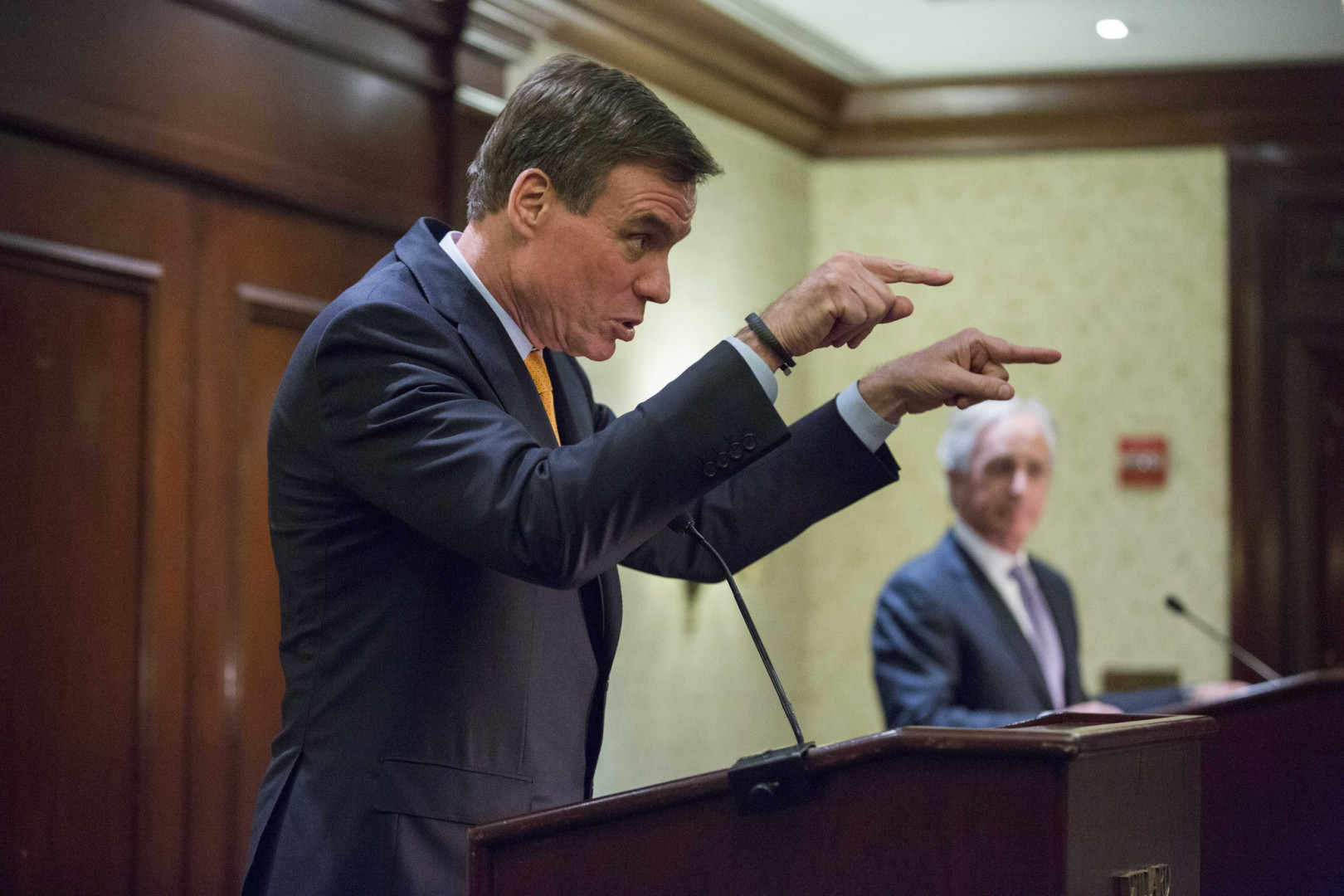Two lawmakers plan to work closely with the tech community to tackle encryption, a contentious issue pitting law enforcement against the industry.
House Homeland Security Committee Chairman Michael McCaul (R-Texas) and Senate Intelligence Committee member Sen. Mark Warner (D-Va.) are proposing a commission to thoroughly discuss how law enforcement can access encrypted communications that involve terrorism. The commission, made up of representatives from tech, privacy, law enforcement and intelligence, would recommend solutions.
Washington has grappled with encryption and crime for some time, but the tone of McCaul and Warner in a conference call Tuesday was more sympathetic to concerns from the tech industry than in previous debates. The duo emphasized the importance of collaboration between different sectors and giving everyone a voice.
Warner’s sponsorship of the commission measure should carry a lot of weight with the tech community. He spent 20 years in the cellphone industry before running for office and co-founded the company that became Nextel.
Law enforcement and intelligence officials worry about the prevalence of encrypted messaging because it allows terrorists and criminals to communicate undetected. Officers can’t monitor the content of certain encrypted messages even if they have a court order.
McCaul said he imagines terrorists communicating in an encrypted “dark” space. “It’s probably one of the biggest threats that we have,” he told reporters. “We want to be able to shine a light on these dark communications so that we can see them in advance and stop anything.”
But that’s only one point of view. In a separate interview, Joseph Lorenzo Hall, chief technologist at the Center for Democracy and Technology, described lawmakers’ desires to stop terrorist communications as a “blood lust.”
Hall said legislation weakening encryption won’t pass Congress because there is such solid opposition from civil liberties groups and the tech industry. “Civil society and industry are unanimously against this, so you’re already starting from a hard place,” he said.
Tech and law enforcement have butted heads in this realm in the past. As such, McCaul and Warner are now displaying sympathy to tech’s worries. McCaul said he and Warner decided against more definitive encryption legislation, such as proposals to institute the controversial “back door,” because of the industry protests. The back door refers to a way for law enforcement to access encrypted communications when they need them.
Tech officials argue that if a “back door” is created for law enforcement, bad actors could infiltrate the same back alley.
The two lawmakers agreed, noting also that people’s privacy may be put at risk. “The idea of putting a back door in someone’s iPhone, for instance, raises a whole host of issues with respect to the government getting into your personal iPhone,” McCaul said, worried about government access to personal health and financial records.
The tech community says encryption is different from other surveillance issues that pit privacy against security. Encryption is also a security measure, lobbyists argue. It is impossible to create a back door only for good guys.
“Encrypted technology is something that protects Americans’ privacy but also is used by American enterprise, American defense, American intel,” Warner said. “So once you create that back door and that set of keys, the challenges could be, ‘Who could get access to that set of keys? And can you ultimately ever protect it from being penetrated?’”
“Encryption was developed for both privacy and for security, so this notion that these two interests are pitted against each other, I think, is a false choice,” Warner added.
It doesn’t help matters that many companies that create encrypted-messaging platforms operate outside the United States, which hampers prosecutions.
For the moment, McCaul and Warner plan to cede to the experts to decide the best way forward. “We believe that there could be a technology solution to this problem,” McCaul said. “The problem thus far is getting the experts in a room together. It’s been very difficult for the tech community to sit down with the FBI and vice versa, and with the Homeland [Security] and the Intelligence community.”
“What we really want to try to do is take this commission approach, which would put folks in the same room, on a tight timeline, that would look at how we sort through this issue, how there will be periods of going dark and how we minimize that,” Warner said.
Both Warner and McCaul said the tech community has told them they are eager to get involved in this commission.
Even so, they are unanimous in their opposition to any legislation that would weaken encryption. Given that, it’s unclear how productive the commission will be. “They say we need to have a discussion. We’ve been talking about this for over a year,” CDT’s Hall said.

